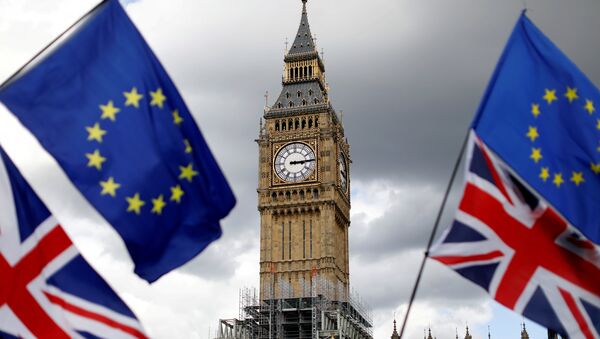"We do not currently see how it will be possible to reconcile there being no border with the Government’s policy of leaving the Single Market and the Customs Union, which will inevitably make the border between Northern Ireland and the Republic of Ireland the EU’s customs border with the UK," the UK House of Commons Committee for Exiting the European Union said in its Friday report on the ongoing Brexit talks.
According to the report, the government is flexible on the protection of the Good Friday Agreement, which regulates the relationship between the United Kingdom, Northern Ireland and the Republic of Ireland.
The report comes several days after the BBC reported that Brexit ministers had suggested a plan to meet Brussels' demand for "sufficient progress" on the Irish border issue so that trade talks could kick-start, with the proposal reportedly consisting of a joint "statement of agreed upon facts" and a special conference in January.
The Irish government has emphasized their position on the border issue last week by issuing a stern warning to British Prime Minister Theresa May's government, threatening to veto any UK-EU trade agreement that makes a hard border with Northern Ireland a possibility.
This step followed November 17 demands made by Irish Prime Minister Leo Varadkar on written assurances from London that a hard border was not a possibility as a precondition for UK-EU trade talks to go ahead.
Citizens' Rights After Brexit
The committee also hailed the progress made on citizens' rights, but noted its disappointment with the absence of an early agreement on the recognition of professional qualifications.
"We are disappointed by the Commission’s stance on the recognition of the professional qualifications of UK citizens in the EU. Such inflexibility is contributing to unnecessary uncertainty for millions of people in the UK and Europe. We believe greater precedence should be given to the impact that the lack of an early agreement on this issue is having on large numbers of citizens," the report read.
The statement was made in the wake of recent media reports, saying that the United Kingdom has been pushing for a mutual recognition of a number of professional qualifications, but Brussels has been reluctant to give in.




